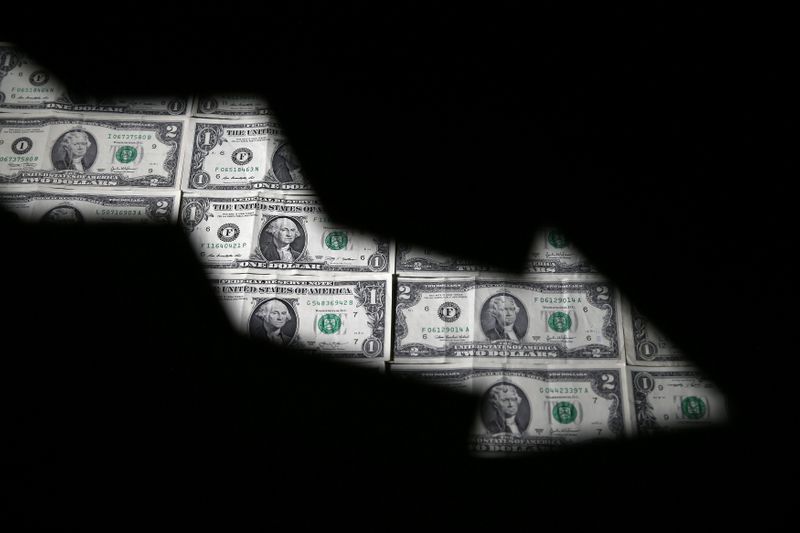By Tom Westbrook
SINGAPORE (Reuters) - The Japanese yen returned as a beacon of safety on Friday, hitting a one-month high against the dollar as deepening worries about coronavirus sent global financial markets into a tailspin.
Hopes the coronavirus outbreak could be contained in China have vanished this week as infections spread around the globe, prompting governments into action and investors to panic.
Stocks are in freefall and a rush for U.S. Treasuries has pushed yields to record lows.
Money markets are now all but certain the U.S. Federal Reserve will lower its benchmark lending rate next month and the yen - heavily sold a week ago - has roared back to life.
It rose half a percent to a month-high of 109.03 per greenback on Friday, leaving the dollar heading for its worst week on the Japanese currency in more than three years .
As investors dumped China-sensitive regional currencies, the yen soared. The Australian dollar tanked 0.5% to a fresh 11-year low on the dollar, but it lost twice as much against the yen.
Against the kiwi the yen rose 1.6% (JPYNZD=).
"I'm not surprised it's reasserting itself," said Mayank Mishra, FX strategist at Standard Chartered (LON:STAN) in Singapore.
"The safe-haven yen tends to do well even in scenarios when the Japanese economic outlook may be at risk. Unlike the Fed, which may be cutting rates, the Bank of Japan does not have that luxury - so the downward pressure on the currency from the yield channel does not materialise."
The Aussie last bought $0.6535 and 71.31 yen (AUDJPY=R). The kiwi hit a four-month low of $0.6247 .
SEISMIC SHIFT
While much is still unknown about the virus, measures to contain it have wreaked havoc on supply chains, the world's economy and financial markets.
In currencies, implied volatility, seen in one-month euro/dollar options, has shot up from near record lows to its highest in a year .
Fed futures pricing has shifted enormously, with investors now expecting three Fed cuts by mid year , beginning with one in March which had been rated just a 9% chance a week ago.
That had sent the euro sharply higher overnight, as investors unwind carry trades, and has offered a slight brake on the massive flight from Asian currencies. But there are few other places for money storming out of Asia to go.
"Until the virus data says otherwise, the trading strategies should probably still err (towards safety)," Deutsche Bank (DE:DBKGn) strategist Alan Ruskin said in a note. "Buy gold, short oil," he said.

"Initially, the dollar weakness is expected to be only modest versus alternatives like the yen, franc and euro; and, the dollar should strengthen versus commodity FX and emerging markets' currencies."